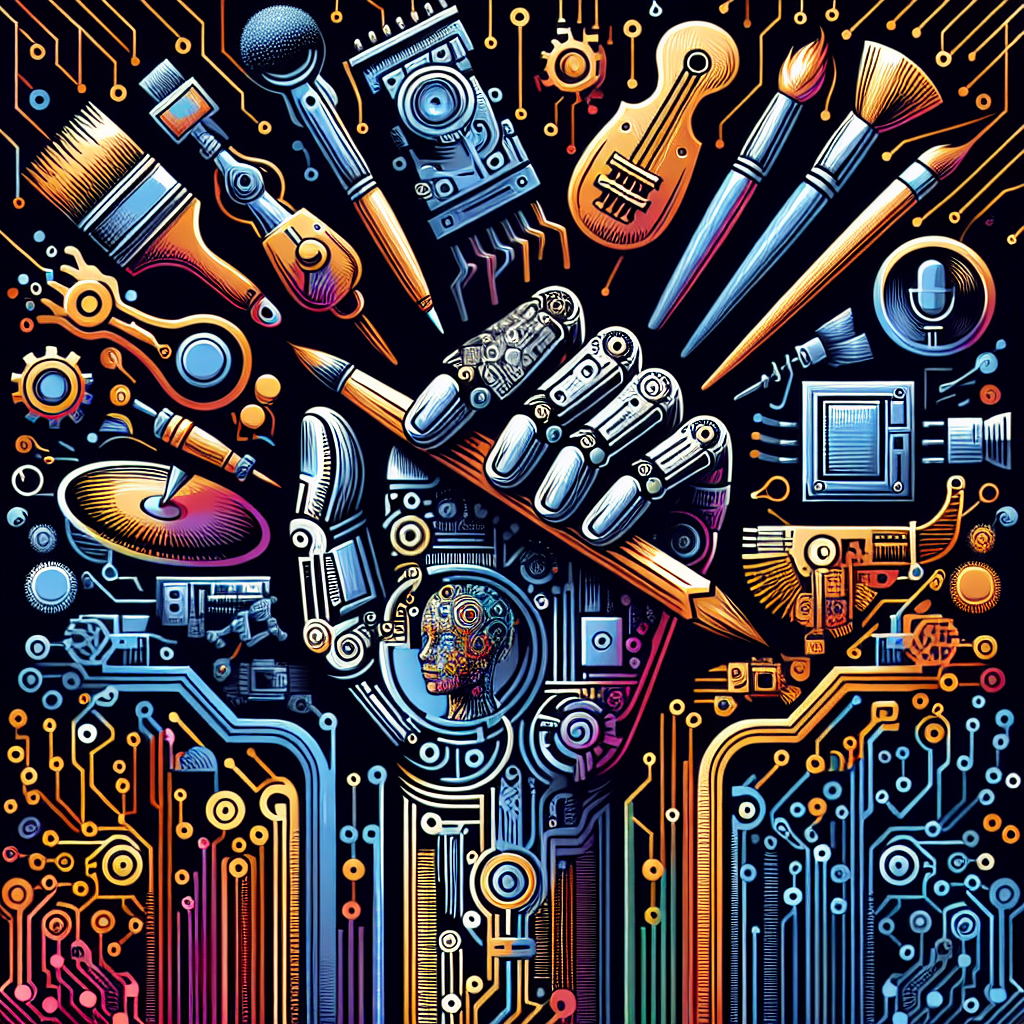The AI Revolution: How Technology is Reshaping Creative Industries
Technology has always played a significant role in shaping creative industries, from the invention of the printing press to the rise of the internet. However, in recent years, we have witnessed a new kind of revolution taking place – the AI revolution. Artificial intelligence is transforming the way we create, consume, and engage with content across various sectors such as music, film, art, and design. This article explores how AI is reshaping creative industries and what it means for the future of creativity.
AI in Music
One of the most notable examples of AI’s impact on creative industries is in the field of music. AI algorithms can analyze vast amounts of data to create music that is indistinguishable from human compositions. Companies like Amper Music and Jukedeck are using AI to generate music for commercials, videos, and other media projects. AI can compose music in various genres, styles, and moods, making it a versatile tool for musicians and composers.
AI in Film
In the film industry, AI is being used to streamline the production process and enhance visual effects. For example, AI-powered software can analyze scripts to predict box office success, help with casting decisions, and even generate movie trailers. AI algorithms can also be used to create realistic CGI characters and scenes, reducing the need for expensive and time-consuming post-production work.
AI in Art
AI has also made its mark in the world of art. Artists and designers are using AI algorithms to create unique and innovative works of art. For example, the AI-generated artwork “Edmond de Belamy” sold for $432,500 at a Christie’s auction in 2018. AI can analyze art trends, styles, and techniques to create original pieces that push the boundaries of creativity.
AI in Design
In the field of design, AI is revolutionizing the way products are created and marketed. AI algorithms can analyze consumer behavior, preferences, and trends to help designers create products that resonate with their target audience. AI can also automate the design process, reducing the time and cost of creating new products.
FAQs
Q: How is AI impacting creativity in creative industries?
A: AI is enabling creators to explore new ideas, styles, and techniques that were previously out of reach. AI algorithms can analyze vast amounts of data to generate innovative content that pushes the boundaries of creativity.
Q: Can AI replace human creativity?
A: While AI can assist creators in generating new ideas and content, it cannot replace human creativity entirely. AI lacks the emotional intelligence, intuition, and subjective experiences that drive human creativity. However, AI can enhance human creativity by providing new tools and resources to explore and experiment with.
Q: Will AI take over creative industries?
A: AI is transforming creative industries by streamlining processes, enhancing productivity, and expanding creative possibilities. While AI will continue to play a significant role in shaping creative industries, it is unlikely to replace human creators entirely. Human creativity, emotion, and intuition will always be essential components of the creative process.
In conclusion, the AI revolution is reshaping creative industries by providing new tools, resources, and opportunities for creators to explore and innovate. AI algorithms are enabling creators to push the boundaries of creativity and create new and exciting content in music, film, art, and design. While AI will continue to play a significant role in creative industries, human creativity, emotion, and intuition will always be essential components of the creative process. The future of creativity is bright, thanks to the power of AI.

